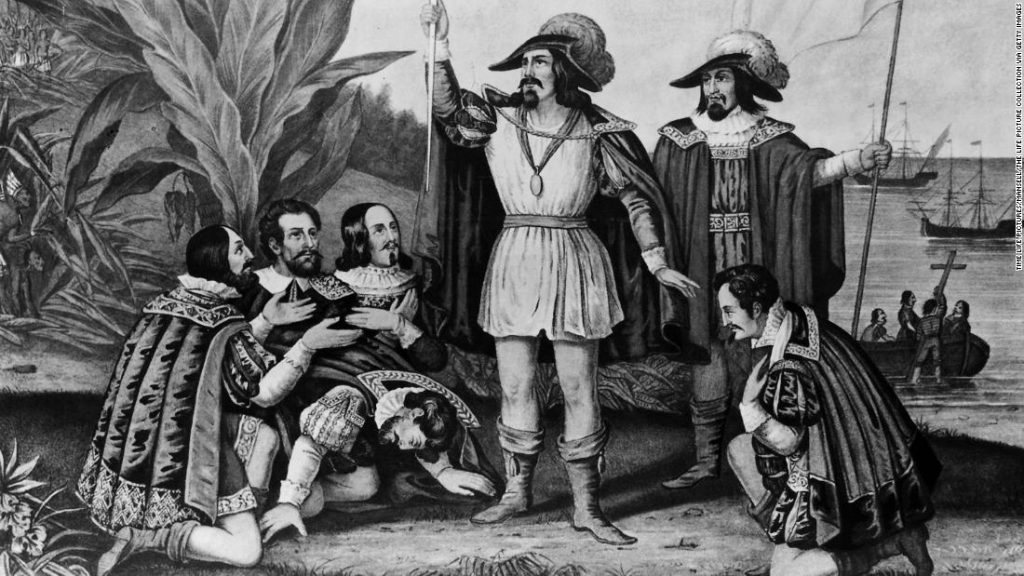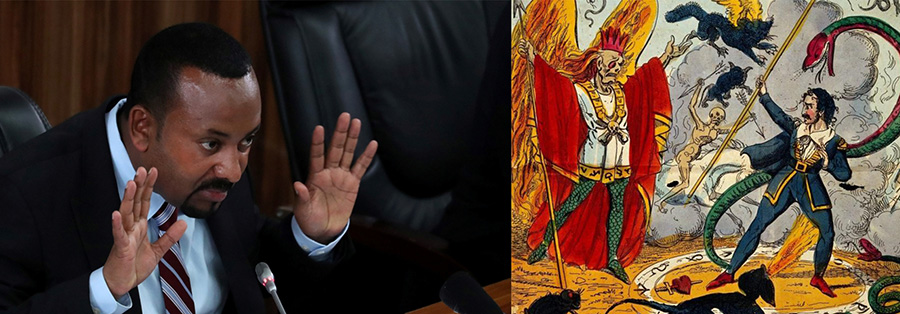
The current war in Ethiopia begs comparison of the similarity of Amhara dominance over what we call Ethiopia with the European conquest of the New World. In America the once toted celebration of Christopher Columbus Day has become instead a day of solemn reflection on forced conquest and cultural obliteration. The blindness to the devastation of American European influence reminds me of the blindness of Amhara obliteration of other Horn of African societies.
The current Ethiopian conflict is not a really new phenomenon but really a repeat event of a recurring theme against central authority in the empire we now call Ethiopia. The expansion of the old Abyssinian empire under the Amhara monarchy since the mid 19th century has repeatedly tried to create a single nation state identity. To some extent international interests have at various times encouraged this to promote the development of a “civilized modern Ethiopian” state as defined by greater world powers. Whereas today many Abiy Ahmed supporters see his leadership as a new pro-Africa anticolonial movement in reality it is shaped into a redo of the reign of the late Haile Selassie into an internal colonization. Like Haile Selassie he portrays an Ethiopia that welcomes major power involvement in economic development but only through him. Like the European settlers who exterminated large groups of American Indians especially those who did not adopt European language and ways of life, Abiy Ahmed has advocated for non-Amhara extermination.
In the New World over the past century we have lessened the idea of Christopher Columbus as a discoverer of the New World in favor of him bringing a dark period of cultural obliteration and forced submission of the aboriginal population of America to that of Europe. The cause of bringing modernity to society is not a justification for tyranny.
Listen to the rhetoric of Amhara news sources and you hear frank open discussion of the inferiority of many ethnic groups and religions of Ethiopia except Amhara. The Amhara culture like Christopher Columbus forced its language, religion, trading practices, government, and even complete civil obligations of the Tigray, Afar, Somali, Beningshagul, and Southern Ethiopian Peoples. Those that argue that the Tigray dominated too much the previous Ethiopian People Revolutionary Front are making a similar point they fail to see about the Prosperity Party which is now an Amhara substitute. I suspect this is why many Tigray do not want to remain in Ethiopia. Many will be happy to see the other regions of Ethiopia find their own destiny. The current war of the Tigray is not about who dominates Ethiopia but rather whether the Tigray, Oromo, and others can choose their own path for self determination.
Like Europe learned in World War II where Hitler dreamed he could unify Europe under a German firm hand and Yugoslavia in the 1980s the times of monocultural dominance over large multicultural dominion are coming to an end. If the region of Ethiopia wants to prosper and find peace, to end the wars that come every generation, it needs to find a new solution. Christopher Columbus has no place in Ethiopia.


